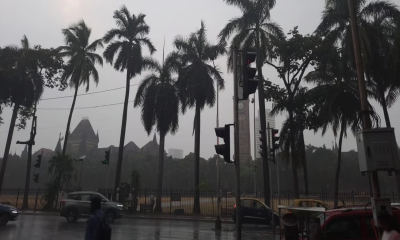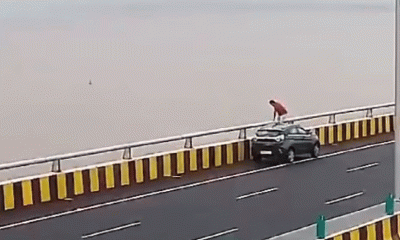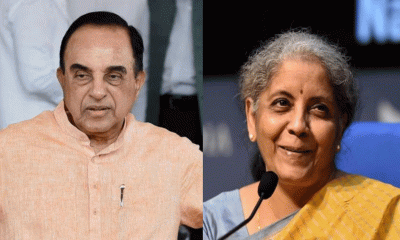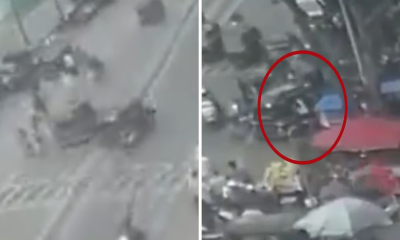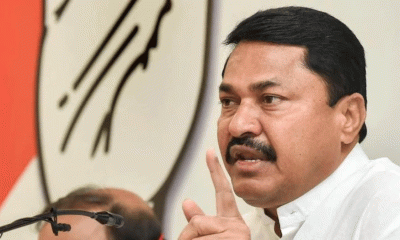Maharashtra
Mumbai: Illegal share-taxi services thrive in city
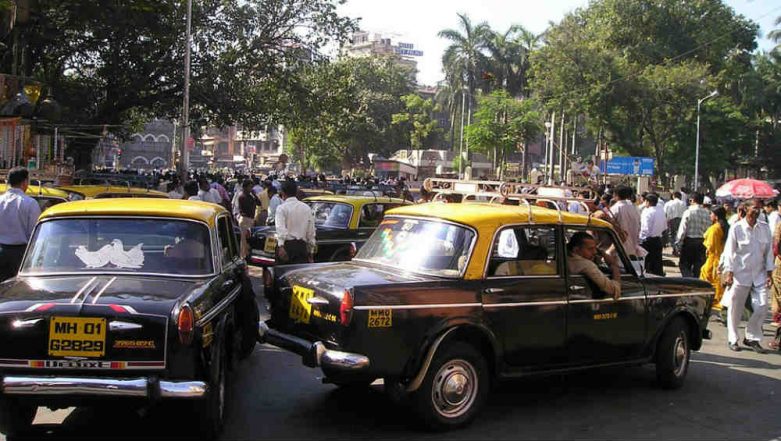
Quite a few of the woes faced by taxi users in Mumbai arise from the fact that more than a quarter of the share-taxi routes in the city are unauthorised.
Not only commuters but even taxi unions have complained about the blind eye turned by the authorities to the operation of these unauthorised services.
The services are operated even at prominent locations like CSMT, Gateway of India and Churchgate in south Mumbai using Maruti Eeco vans which are officially licensed to carry six passengers but into which are often crammed twice as many, including children.
The police, however, claim the allegations of connivance against them are false and they alert the Regional Transport Office (RTO) whenever an irregularity is spotted, especially on camera.
“Several share-taxi routes starting from CSMT, Gateway, Churchgate, Mumbai Central, Mahalaxmi and Grant Road are unauthorised,” said AL Quadros, long-time General Secretary of the Mumbai Taximen’s Union, the city’s oldest and most prominent black-and-yellow taxicab union.
Commuters also said taxi drivers openly flout rules across different so-called share-taxi routes and not only overcharge passengers but also overload the vehicles.
“Anyone can spot the stools placed in most of the share taxies plying in the city,” said Mayuresh Kamble, 32, a resident of Dadar. “On Saturday I took a share taxi from the Gateway of India to CSMT and the driver charged me Rs30.”
Mr Kamble said he was asked to sit on a stool by the driver but he refused. The driver then requested another passenger already in the vehicle to take the stool and gave Kamble a seat in the third row of the vehicle.
Thane resident Ritesh Shah, 28, who travelled from Girgaum Chowpatty to CSMT, said, “I was first offered the front seat by the driver. Then he asked me to make space for another commuter. As I was in a hurry, I complied but it was very inconvenient.”
Mr Quadros said these unauthorised routes are being operated by local goons with the help of the traffic police.
But a traffic police officer dismissed the allegation and claimed that “in the South region especially, taxi drivers mostly abide by rules”, though the illegal operators are plainly visible on the main streets of Fort, a kilometre from the police headquarters.
The officer further claimed that “in case we do find something wrong and they are caught on CCTV cameras, we intimate the RTO, who take strict action”.
An officer from the Colaba traffic division said taxi stands are sanctioned by the RTO and the BMC. “We [the traffic police] have no role to play in the taxi stand part, but if we do receive any complaints, we check on them and, if necessary, act against the offenders.”
Asked about overloading, he said, “There are times when a single officer is out there managing the scene. Sometimes one may miss out on a vehicle or two, as it is humanly impossible to check every vehicle. However, if any taxis are found overloading, challans are issued to the owners.”
The irony is that some of the routes are operated from just outside the office of Maharashtra’s Director General of Police near the Gateway and the office of the Deputy Commissioner of Police (Zone I) at Bori Bunder.
Another taxi union leader, who did not want to be named, said these illegal share-taxi services are able to operate as they have the blessings of local politicians. He also blamed officials of the Transport Department for the rampant growth of unauthorised share-taxi routes.
“Getting approval for a new share-a-taxi route in the city is not easy,” the union leader said. “That’s why a large number of unauthorised routes have cropped up.”
Explaining the process of setting up a new share-a-taxi route, a Transport Department official said the union has to first send in a request to the RTO, which then approaches the department for consent. “If the Traffic Department does not have any objection, a joint survey is conducted. If the proposed route is found feasible from the point of view of traffic safety and commuter convenience, the RTO gives its approval and fixes the fare.”
The official also passed the buck on to commuters, saying they need to come forward and report errant drivers, though the violations happen on the main street in daylight.
Maharashtra
‘Meltdown Of Worst Kind’: Sena UBT MP Priyanka Chaturvedi Hits Back At X User Accusing Her Of Humiliating Pune BJP MP For Speaking In Marathi In RS
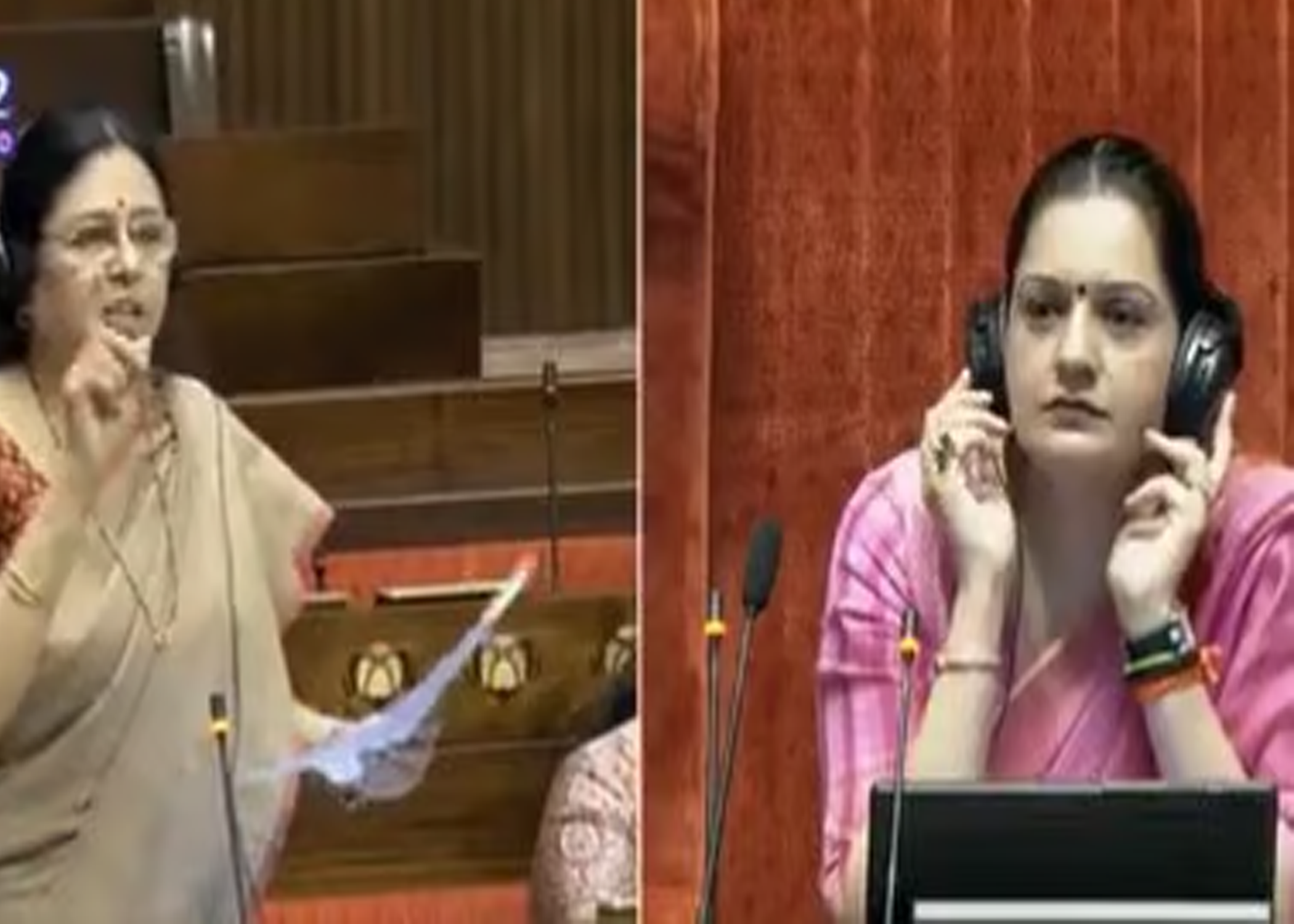
Shiv Sena UBT MP Priyanka Chaturvedi, who presided over the Rajya Sabha session on Thursday, has addressed allegations of attempting to “humiliate” Pune MP Dr. Medha Vishram Kulkarni for speaking in Marathi instead of English. The allegations were made by @MrSinha_, a ‘Hindu rights activist’ who criticised Chaturvedi for allegedly showing bias against Marathi speakers.
Chaturvedi took to X to refute these claims and said that Dr. Kulkarni spoke in Marathi without interruption. She claimed that Dr Kulkarni was repeatedly asked to sit down by her own ally, which she said was an attempt to show disrespect towards the chair. Chaturvedi also criticised @MrSinha_ for lacking an understanding of parliamentary procedures, advising him to review the rules of the Rajya Sabha.
In her post on X, Chaturvedi wrote, “This pawpaw champ bhakt is truly having a meltdown of the worst kind. Dr. Medha Kulkarni and Rajni Patil ji both spoke in Marathi and without interruption, barring when her own ally sitting in the front row had a hissy fit and asked her to sit down multiple times so that he could be disrespectful to the chair. Also paw paw champ, understand parliamentary proceedings in the RS and the rule book. Cry some more.”
@MrSinha_ had earlier criticised Chaturvedi, questioning her respect for Marathi as a language and accusing her of being disrespectful towards the Pune MP.
“Uddhav Thackeray’s RS MP Priyanka Chaturvedi tried to humiliate the MP from Pune, Maharashtra because she was speaking in Marathi but not her “posh” language English? She kept shouting at her… What does she think of herself? And what happened to UT’s Marathi ashmita?” @MrSinha_
Meanwhile, many wondered how Chaturvedi was made to preside over the Rajya Sabha, a chair on which we usually see the Vice President of India.
As per the rules of the Parliament, in the absence of the Vice President of India, who serves as the Chairman of the Rajya Sabha, the responsibility of presiding over sessions falls to the Deputy Chairman or a panel of Voice Chairpersons.
Chaturvedi, a member of this panel, was tasked with the role during the session. Her varied approach to presiding, which included moments of stern reprimand and visible enthusiasm, has been noted by many on social media.
Maharashtra
Mumbai: Central Railway GM Inspects CSMT Lobby After 150 Dead Rats Found; Promises Quick Renovation
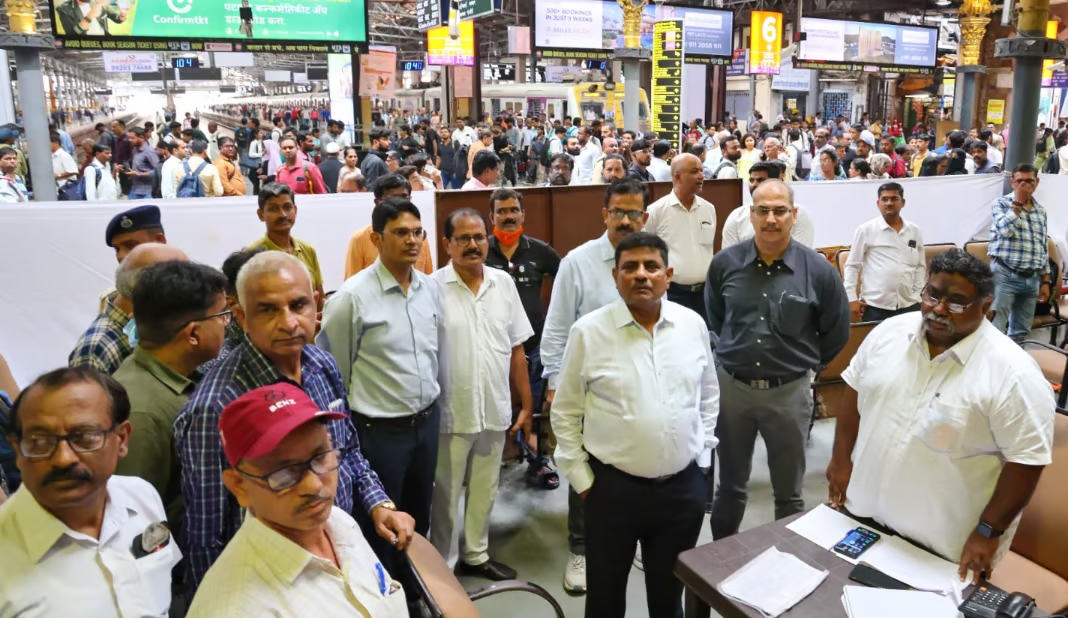
Mumbai: On Friday, General Manager of Central Railway, RK Yadav, conducted an inspection of the motorman and guard lobby at CSMT amid serious cleanliness concerns. This visit comes in response to allegations that approximately 150 dead rats had been discovered in the lobby, highlighting significant issues with hygiene and pest control.
Sources indicate that the foul smell from the dead rats had forced motormen and guards to work outside the lobby for several days. In response, Central Railway has commenced renovation work on the affected area, with completion anticipated by Monday.
During his visit, GM Yadav addressed the staff’s concerns and assured them that the renovation would be completed promptly. The GM’s inspection also included a review of the ongoing extension project for Platforms 13 and 14, which aims to enhance capacity and passenger experience. Additionally, he evaluated the newly inaugurated toilets in the suburban concourse, which were recently renovated with support from the Dmart Foundation.
“The visit underscores Central Railway’s commitment to improving infrastructure and facilities at CSMT, striving to ensure operational efficiency and a better environment for both staff and passengers” said an official of CR.
Maharashtra
Mumbai: X User Booked For Derogatory Posts Against Maha Deputy CM Devendra Fadnavis
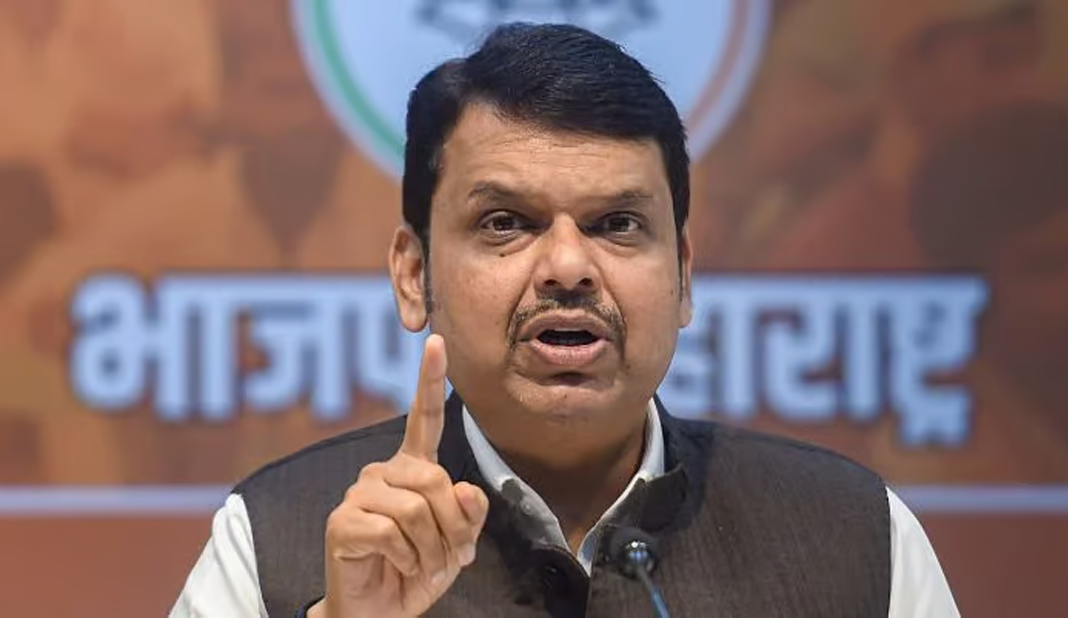
Mumbai: A case has been registered against a user of the social media platform ‘X’ for allegedly posting derogatory memes about Maharashtra Deputy Chief Minister Devendra Fadnavis, police reportedly stated on Friday. The complaint was lodged at Khadakpada police station in Thane district under the Bharatiya Nyaya Sanhita for promoting enmity between different groups and public mischief.
X User Posts Morphed Pics With Derogatory Texts
The complaint specifies that the ‘X’ handle @gajabhauX has been creating and sharing derogatory memes featuring morphed photographs of Fadnavis since July 19. The posts contain morphed pictures of Fadnavis portraying Afzal Khan, Aurangzeb and other Mughal personalities.
The posts also contain texts having use of derogatory language against the Deputy CM considering him as the evil villain responsible for all the bad that is happening in the state. The complainant reportedly stated that these posts have created a sense of dissatisfaction and insecurity among people.
Case Filed In Thane
A case was registered on Thursday at Khadakpada police station in Thane district under relevant provisions of the Bharatiya Nyaya Sanhita for promoting enmity between different groups and public mischief. The police are currently investigating the matter, and no arrests have been made yet.
Fadnavis Reacts To Allegations By Anil Deshmukh
Meanwhile, Devendra Fadnavis recently responded to the allegations of Anil Deshmukh that three years back a close associate of Fadanvis had offered him to make allegations against Uddhav Thackeray, Aaditya Thackeray, Ajit Pawar and Anil Parab in a false case, in return he was assured te be set free from ED and CBI inquiry.
Fadnavis while replying to the allegations warned him that he doesn’t spare anyone who troubles him unnecessarily. Fadanvis said “I never do such politics. I don’t trouble anyone unnecessarily. I want to tell Deshmukh that his party leaders have given me video clips, wherein he was seen saying bad words against Uddhav Thacekray and Sharad Pawar and Sachin Waze. If any one is making false allegations against me, I will not keep quiet and make those clips viral. I never speak without evidence.”
He further said that the Chief Justice of Bombay high court directed to register a case against Deshmukh now Deshmukh is on bail. “CBI chargesheet is saying how pressure was created to put Girish Mahajan behind the bar under a false case. I had given evidence to the CBI and it shows how the MVA government had tried to invoke mocca against opposition leaders.”
-

 Crime2 years ago
Crime2 years agoClass 10 student jumps to death in Jaipur
-

 Bollywood11 months ago
Bollywood11 months agoJawan Leaked Online! Shah Rukh Khan’s Film Falls Prey To Piracy Within Hours Of Release
-

 International10 months ago
International10 months agoAsia Cup 2023: Body Blow For Sri Lanka As Lead Spinner Likely To Miss Final Against India
-
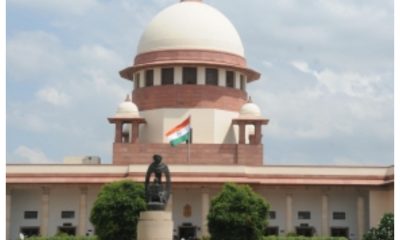
 Crime2 years ago
Crime2 years ago‘You must stop this’, SC expresses concern on hate speeches made at Dharam Sansads
-

 Bollywood11 months ago
Bollywood11 months agoWith Rs.75 Cr, Shah Rukh Khan Breaks His Own Record As Jawan Beats Pathaan On Day 1 At Box Office
-
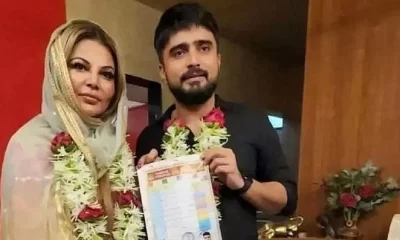
 Entertainment2 years ago
Entertainment2 years agoRakhi Sawant changes name to Fatima after her wedding with Adil Khan Durrani – Check viral Nikah pics
-

 Bollywood2 years ago
Bollywood2 years agoAnushka Sharma starts shooting for her ‘Chakda Xpress’
-

 Bollywood11 months ago
Bollywood11 months agoJawan On OTT: Shah Rukh Khan’s Film Sold To Netflix For A Whopping Rs.250 Crore



